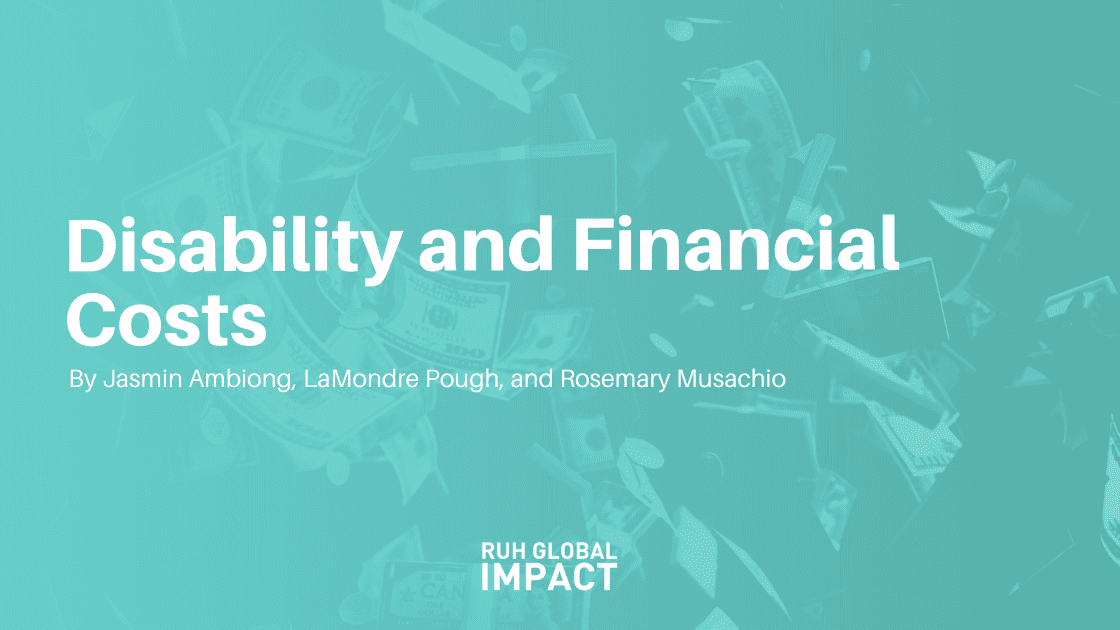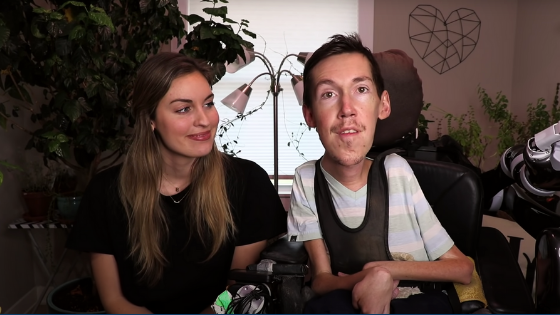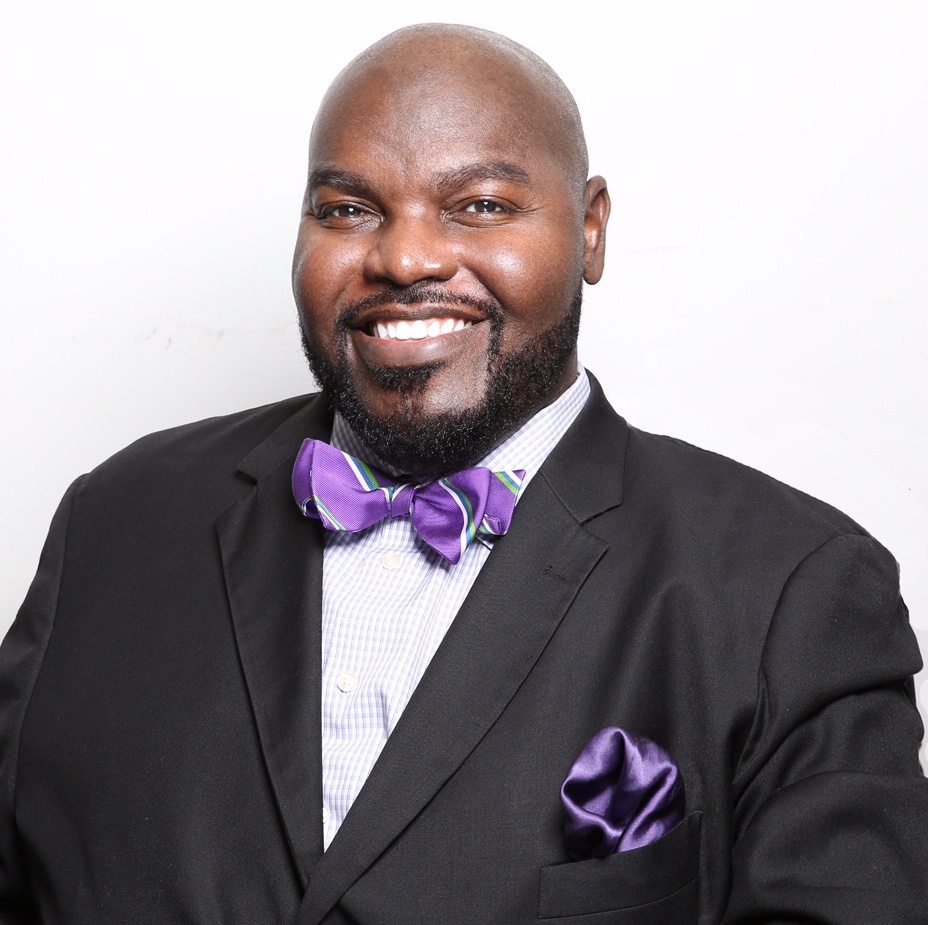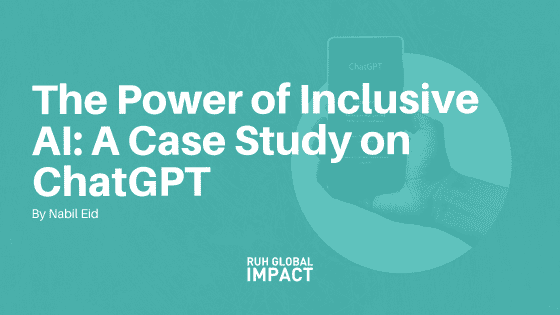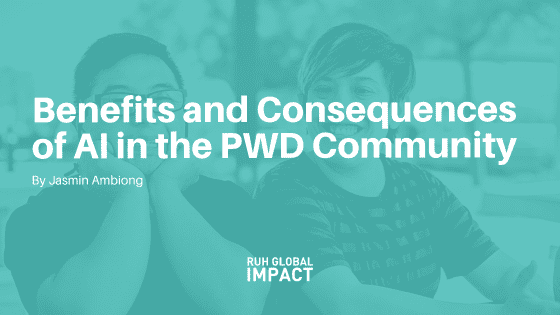There are a lot of articles around the web that you can read about persons with disabilities living a meaningful and happy life which I think is important. We need to spread as much awareness as possible. One thing that I don’t get to see being talked about enough though is the financial burden that we persons with disabilities have to bear for us to live our best lives. Assistive technologies, accessible environments, home care, assistive devices, medications, and other disability-related items have made life easier for us. Yet, all of these come with additional costs.
If I were to be honest, more money means more comfort you can buy for someone with a disability. These comforts are a luxury for fully-abled people, but it’s a necessity for us. Alexa, Google Home, Apple TV, Smart Watches, etc., are necessities depending on what your disability is. These devices are not cheap especially when you live in a developing country like the Philippines. In this article, some of my colleagues at Ruh Global Impact and I are going to share our lived experiences in dealing with these expenses. LaMondre and Rosemary are also going to share some financial tips.
LaMondre Pough
I am LaMondre Pough, Chief Sustainability Officer of Ruh Global IMPACT and I have Spinal Muscular Atrophy (SMA). SMA is a progressive neurological disorder that results in extreme muscle weakness. I am a full-time wheelchair user, and I require assistance with all my activities of daily living.
I live alone. Since I require assistance with feeding, toileting, bathing, and getting dressed, I utilize home care services, which are primarily covered by insurance. Each day at specified times, Personal Care Aides (PCA) come into my home and assist me in living my life. However, there are instances when I need additional assistance. When situations like this occur (and they do multiple times a week), I would typically call upon friends and family.
Since the COVID19 pandemic began, things have drastically changed. I still require and receive PCA services and I still have situations where I need additional assistance. However, due to social distancing measures, I can no longer call on family and friends. Insurance does not cover these additional supports. So, I have to pay for these additional services out-of-pocket, which creates a tremendous financial strain. Additionally, to minimize the risk of exposure, I use delivery services for things such as groceries. While I am ecstatic that the services are available, I must admit, they are more expensive than just getting them yourself. So again, another necessary expense brought on by the pandemic.
Rosemary Musachio
I’m Rosemary Musachio, Chief Accessibility Officer for Ruh Global Impact and an independent accessibility consultant. Since birth, I have had cerebral palsy (CP). Due to CP, I can’t walk or talk. I also can’t provide necessary physical self-care, such as grooming or feeding myself.
Consequently, I need caregivers to do these things, along with doing the laundry and cleaning the house. Some of my personal care assistants (PCAs) are paid by Medicaid Ohio Home Care Waiver. However, being a Medicaid provider requires taking classes, becoming certified, and keeping strict records. They often earn less than $20. Add to that the pandemic, has dissuaded caregivers from becoming Medicaid PCAs. So, I’m forced to pay out of pocket for backup and weekend caregivers, now averaging over $300 a week.
Besides PCAs, Medicaid Ohio Home Care Waiver also can buy medical equipment, such as wheelchairs that I have received, and home modifications. In fact, thanks to the state-fund program, I have a ramp in front of the house and a chair lift so I can ascend to the second floor. However, the program is a snail. The process of acquiring the liberating equipment takes months. Medicaid has to find companies to bid on the project. After the companies submit the bids, Medicaid has to review and approve one. Finally, home modification can be done, which takes a few days or less. To avoid all the bureaucratic waiting, I decided to personally finance the instillation of a walk-in shower where caregivers can wheel me in without lifting me up and putting me on a shower seat.
Paying for these disability-related expenses can put a tight financial strain. However, the other day I was watching my favorite YouTube channel, Squirmy and Grubby, and they mentioned CalAble. Briefly, CalAble is a California-based program that allows persons with disabilities nationwide to open investment/savings without affecting their benefits. Someone who receives benefits but isn’t working can deposit as much as $15,000 a year, while someone who works can put in as much as an additional $12,760. Once an account is open, the owner can invest in stocks and bonds. The account can earn up to $529,000 without affecting Medicaid. However, if the person receives Social Security Insurance (SSI), the limit is $100,000. Earnings can go towards personal care, housing, adaptive equipment, transportation, even education. I’m very excited about CalAble. It has opened the doors for persons with disabilities to live happier, healthier, more sustainable lives.
Jasmin Ambiong
I’m Jasmin, a Blogger and a Social Media Coordinator for Ruh Global Impact. As someone who has a visual impairment (totally blind), I have to pay extra for things so I can live my best life. Smartphones, appliances; I can’t just buy the cheapest one in the market even if I wanted to because I have to consider if it’s going to be accessible for me. Here in the Philippines where I live, traveling is not accessible or safe for someone like me who is blind. For this reason, I often have to spend twice, if not more, whenever I need to go somewhere. Since I have a sighted guide with me whenever I go out, I have to pay twice for fares, food, entrance fees, and the time of my guide. It is less expensive if I’m out with friends or family.
These expenses were not easy for me. I had to make adjustments so I could afford them. Back in college, I had to bring packed lunch for me and my guide. I made excuses to avoid some school events so my allowance would be enough. After a year of looking for a job in the capital city, I went back to my hometown because I realized that even if I manage to find a job, it might not be even enough to cover my daily expenses. Now, the COVID-19 pandemic has caused a huge price increased for almost everything, especially when it comes to essential things like food and fare. I am aware that I’m one of the lucky ones who have a supportive family and a wonderful job to support my needs because these times have been particularly tough for the PWD community.
A lot of persons with disabilities were already struggling to afford the extra expenses that their disabilities require them to have way before the COVID-19 pandemic. It is disheartening to think that they are now in a tougher situation because of the price hike, job loss, strict COVID-19 preventive measures, and other factors. I think it’s about time that the government take a serious look into this. For me, the solution to this does not just lie in providing financial aids. Persons with disabilities need to be given dignity by allowing them to do things on their own and giving them the means to provide for themselves and their families. Accessible environments and having jobs can do a lot to solve this problem and will enable persons with disabilities to live their best lives.
Action Steps you Can Take During These Tough Financial Times.
Our situations are not isolated. There are millions of people with disabilities experiencing the same dilemma. These expenses, while many of them are incremental, can have a significant financial impact. Here are four tips that may help during these tough financial times.
Look for Outside Resources
Many organizations offer assistance with utility payments, housing costs , and food. They range from civic groups, religious organizations to governmental entities. There are even some private foundations that may be able to help. The key here is to ask around and find out who’s doing what in your area.
Audit Your Expenses
During these times, it is critical to look at how you spend your money. As you evaluate your finances, determine what is necessary and what is not. Then look to see if there are ways to cut back on unnecessary spending. This does not mean cutting out all the fun things . But it is an encouragement to find ways to reduce unnecessary spending and direct those funds to things you believe are important.
Find Ways to Earn Extra Income
Earning extra money can be a tremendous help in tough financial times. The gig economy and the widespread availability of the Internet has created numerous opportunities to earn extra money. In many instances, all that is needed is a computer or a smartphone, and a reliable, robust Internet connection. So, what will you do? Consider your skills, what you like to do, and what items you own that you either do not want or do not use anymore. Each of these could be sources of extra income.
PCA as a Reasonable Job Accommodation
If you have a disability and need PCA to prepare you for work each morning, ask your employer if they can fund this as a reasonable job accommodation. If they consider you a valuable resource, they’ll honor these requests wholeheartedly.
Whatever you decide to do remember the goal is to reduce financial stress. That way you can focus on the things in life that bring you joy.
***
To learn more about Ruh Global IMPACT please visit www.RuhGlobal.com or follow us on most social media platforms at @JazzAmbiong, @RoseMusachio, @LaMondre_P, @debraruh, and @ruhglobal. Please also subscribe and like us on YouTube at www.YouTube.com/debraruhglobal.

